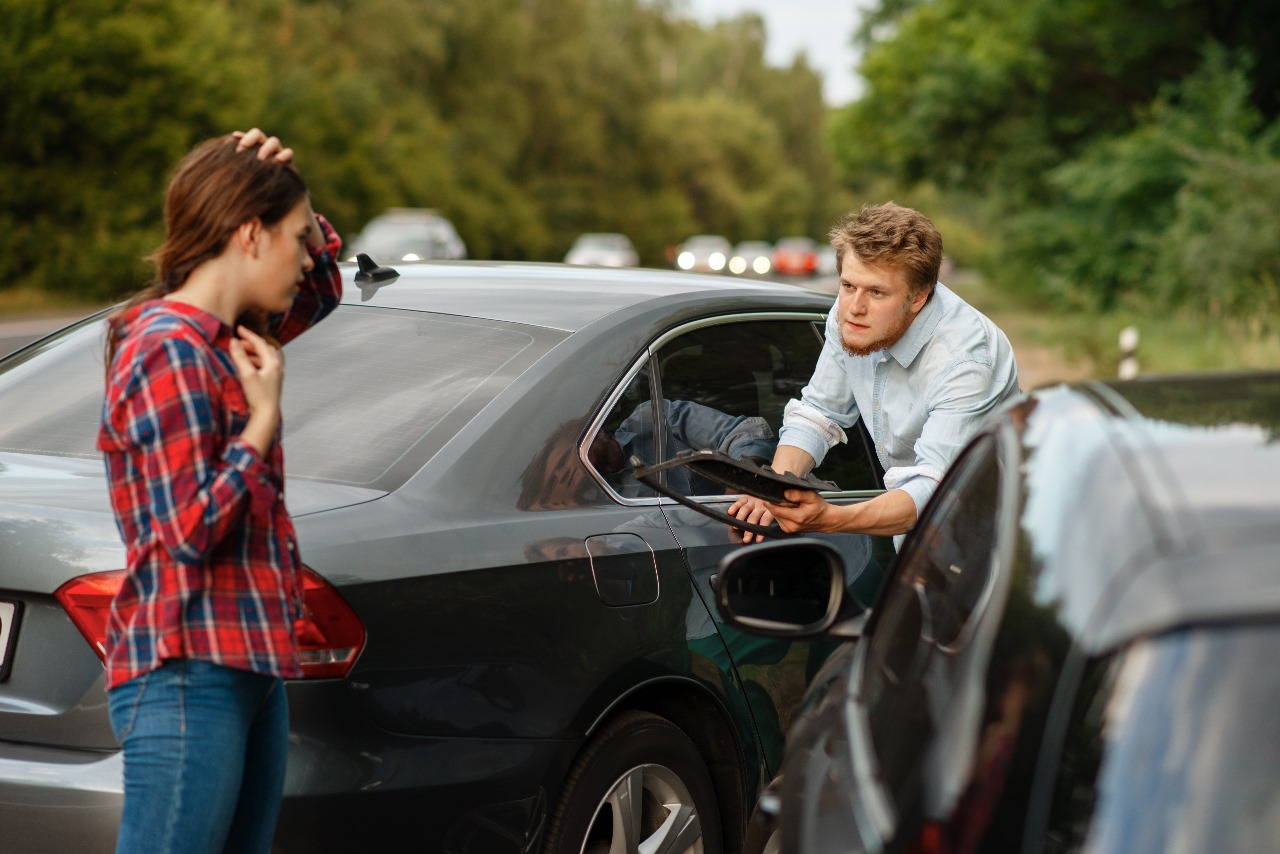Car accidents happen every day despite our best efforts to avoid them. When we think…
5 Steps to Take After a Car Accident: Protecting Your Rights – Guest Post

Have you ever been in a car accident and wondered, “What should I do now?” You’re not alone. Many people find themselves confused and anxious after a crash, unsure of how to protect their rights or handle the situation properly.
You might worry about medical expenses, car repairs, or how to deal with insurance companies. In this blog, we’ll guide you through 5 essential steps to take after a car accident, with practical advice for each stage of the process.
Following these steps can help you confidently navigate the aftermath and minimize any negative consequences.
Step 1: Ensure Safety and Seek Medical Attention
If the accident is minor and no one is seriously injured, move your vehicle out of traffic to prevent further collisions. Turn on hazard lights and use road flares or triangles to alert other drivers. If the car is inoperable, stay inside with your seatbelt fastened until help arrives, unless there’s a fire or other danger. Check yourself, passengers, and others for injuries. Even if you feel fine, some injuries like whiplash or internal trauma may appear later, so seek medical attention to be cautious.
Call 911, even for minor accidents, to ensure medical professionals can evaluate everyone involved. This helps document injuries and creates an official accident report, which is important for insurance and legal purposes. Follow up with your doctor in case injuries surface later, and ensure you have a medical record for insurance claims or legal actions.
Step 2: Document the Scene of the Accident
Take Photos and Videos
Use your smartphone to capture the entire scene of the accident. Take photos from different angles of the vehicles, any visible damage, road conditions, skid marks, and any traffic signs or signals that might have contributed to the accident.
Don’t forget to photograph any injuries sustained by yourself or others involved. Videos can also provide a comprehensive view of the scene, so capture as much as possible.
Collect Witness and Report Immediately
If there were any witnesses to the accident, ask for their contact information and a brief statement of what they saw. Independent witness accounts provide an unbiased perspective on the accident and could be invaluable when determining fault. The police report is an official document that provides an impartial overview of the accident.
| Common Mistakes After a Car Accident | Recommended Actions |
| Failing to move the vehicle to safety | Move to a safe location if possible to avoid further accidents |
| Forgetting to take photos or gather evidence | Take photos, and videos, and gather witness statements for documentation |
| Admitting fault at the scene | Avoid admitting fault; let insurance companies or law enforcement determine responsibility |
| Not contacting the police | Always contact the police to create an official report, even for minor accidents |
| Delaying medical treatment | Seek immediate medical attention, even if you feel fine initially, to avoid hidden injuries worsening |
In places like Baton Rouge, it’s important to follow the local laws surrounding accidents and reports. Make sure to get the badge number and contact information of the responding officer, and ask how you can obtain a copy of the report once it’s filed. If needed, Car Accident Lawyers in Baton Rouge can guide you through this process to ensure your rights are protected.
Exchange Information with the Other Driver(s)
You should exchange important details with the other driver(s), including:
- Full name and contact information
- Driver’s license number
- License plate number
- Insurance company and policy number
- Vehicle make, model, and color
Be polite but avoid admitting fault, as this could complicate any legal or insurance claims.
Step 3: Notify Your Insurance Company
Once you’ve documented the scene and gathered the necessary information, you’ll need to notify your insurance company as soon as possible. Reporting the accident promptly helps avoid delays in processing your claim.
Provide Accurate Information
When speaking with your insurance provider, stick to the facts and avoid speculating about who was at fault. Provide them with the photos, videos, and other evidence you collected at the scene, as well as the police report when it’s available. Your insurance adjuster will review all the information and determine the next steps.
Keep Records of All Communications
Ensure that you maintain written records of all communications with your insurance company, including phone calls, emails, and claim documents. This can serve as a valuable reference if any disputes arise during the claims process.
Cooperate with Your Insurance Company
Your insurance company will likely send an adjuster to assess the damages to your vehicle. Cooperate with them and follow the company’s procedures for getting an estimate and arranging repairs. However, be cautious if they try to pressure you into accepting a lower settlement than you deserve.
Review Your Policy
Take the time to review your insurance policy, including your coverage limits, deductible, and any additional options like uninsured motorist coverage. Understanding your coverage can help you make informed decisions and ensure you receive the compensation you’re entitled to.
Step 4: Be Cautious About Speaking with the Other Driver’s Insurance
Avoid admitting fault or offering opinions about the accident when speaking with the other party’s insurance adjuster. They may ask questions designed to get you to inadvertently admit responsibility, so keep your responses brief and factual. You are not obligated to give a recorded statement unless required by your insurance policy.
If the accident is complex or involves significant damages or injuries, it may be wise to consult with an attorney before speaking with the other party’s insurance company. A lawyer can help you navigate these discussions and ensure you don’t say anything that could harm your case.
Step 5: Consider Legal Action if Necessary
If you’re dealing with severe injuries, significant property damage, or uncooperative insurance companies, legal action may be necessary to protect your rights and obtain the compensation you deserve.
Hiring a personal injury lawyer can be an important step in ensuring that your case is handled properly. An experienced lawyer will assess the facts of your case, advise you on your legal rights, and negotiate with insurance companies on your behalf.
Many personal injury lawyers work on a contingency fee basis, meaning they only get paid if you win your case, making legal representation more accessible for accident victims.
Conclusion
We hope you never have to experience the stress and uncertainty of a car accident, but if it happens, knowing what steps to take can make all the difference.
From ensuring everyone’s safety to protecting your rights with documentation and careful communication, following these steps will help you navigate the aftermath with greater confidence.
Have you thought about how you’d handle an accident? Now you’re ready. Keep this guide in mind, and if you find yourself in this situation, you’ll know exactly what to do next.
Frequently Asked Questions
Can I move my car after an accident?
Yes, if the accident is minor and no one is seriously injured. It’s safe to move your car out of traffic to prevent further collisions, but make sure to document the scene before doing so.
Should I call the police for every accident?
Yes, even for minor accidents. The police will create an official report that could be crucial for insurance claims or legal actions.
What should I avoid saying to the other driver’s insurance company?
Avoid admitting fault or providing speculative information. Stick to the facts and consult with a lawyer if you’re unsure how to proceed.
How soon should I contact my insurance company after an accident?
Notify your insurance company as soon as possible, ideally within 24 hours, to avoid complications or delays in the claims process.

